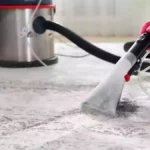The integration of smart technology into everyday life is ubiquitous, and the automotive industry is no exception. Modern vehicles are not merely modes of transportation; they are now sophisticated mobile devices equipped with a host of technologies, from GPS tracking to autonomous driving capabilities. This technological evolution extends beyond the vehicles themselves and into the logistics and processes surrounding them, including car shipping. Here’s how car shipping has adapted to today’s smart technology, enhancing the efficiency, security, and convenience of transporting vehicles.
Real-time Tracking and Management
One of the most significant advancements in London car transportation is the use of GPS and real-time tracking technologies. These tools allow both service providers and customers to monitor the precise location of their vehicles during transit. Real-time tracking provides peace of mind to owners by offering transparency and up-to-the-minute updates on their vehicle’s status and expected delivery time. This is especially valuable for the shipment of luxury, classic, or high-performance cars where any delay or mishap could be costly.
Automated Scheduling and Dispatching
Smart technology also enables more efficient scheduling and dispatching in car shipping logistics. Logistics companies can optimise routes and delivery schedules using sophisticated algorithms and data analytics, reducing fuel consumption and delivery times. This automation not only improves operational efficiency but also enhances customer satisfaction by ensuring timely deliveries and minimising potential delays caused by human error or manual scheduling processes.
Enhanced Security Measures
As vehicles become more valuable and technologically advanced, the need for enhanced security during shipping increases. Car shipping companies employ various smart technologies to safeguard vehicles. This includes electronic locking systems, security alarms, and surveillance technology that can be monitored remotely. These systems provide an additional layer of security, deterring theft and unauthorised access during transit.
Condition Monitoring Systems
The integration of condition monitoring systems in car shipping is a boon for ensuring the integrity of the vehicle throughout its journey. Sensors can now track a vehicle’s condition, recording data on factors such as temperature, humidity, and vibrations. This information is crucial for maintaining the quality of sensitive vehicles, particularly electric cars and high-performance models that may require specific environmental conditions to prevent damage.
Seamless Communication Channels
Smart technology has revolutionised communication within the car shipping industry. Mobile apps and online platforms facilitate seamless interaction between shipping companies, drivers, and customers. These platforms provide an easy way for customers to book shipments, receive updates, and handle payments securely, all from their smartphones or computers. For shipping companies, these tools help streamline communication, document management, and customer service.
Predictive Maintenance and AI Integration
Predictive maintenance technology, powered by artificial intelligence (AI), is starting to play a role in car shipping. By analysing data collected from vehicles and transport machinery, AI can predict potential breakdowns or maintenance needs before they become problematic. This proactive approach minimises downtime, prevents delays, and maintains the continuous flow of logistics operations.
Conclusion
The integration of smart technology into car shipping has transformed it into a highly efficient, secure, and user-friendly service. These technologies ensure that vehicles are not only transported safely and swiftly but also with a level of transparency and interaction that was previously unattainable. As the automotive industry continues to evolve, so too will the technologies that support its logistics, promising even greater advancements in car shipping in the future.







